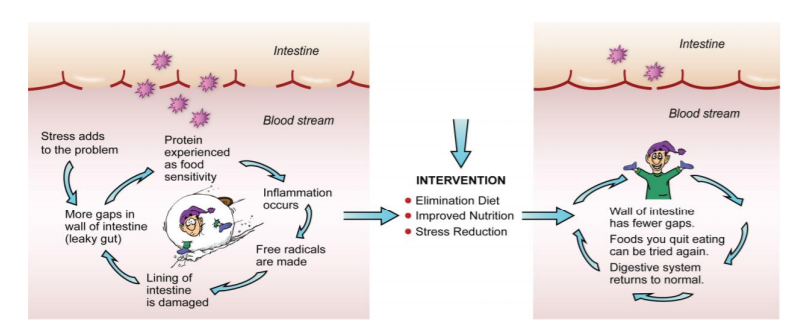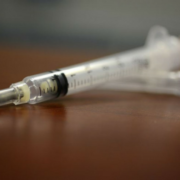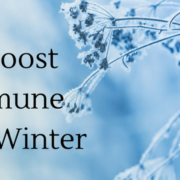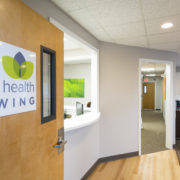What is Leaky Gut Anyway?
When our body is healthy our cells lining our intestines should allow the absorption of important nutrients, while keeping substances out that could make us sick. Leaky gut happens when there is an increase of the harmful and inflammatory substances being absorbed because the walls of the intestines have been injured and there are bigger gaps between the cells. These gaps allow passage of these harmful substances inside the body where they ordinarily would not go. Unfortunately, when our body is chronically exposed to these substances or bacteria in the blood stream, it can cause local (GI symptoms or malabsorption) and systemic (whole body symptoms) reactions and inflammation. Some common things that have been seen in association with intestinal permeability are – chronic fatigue syndrome, inflammatory bowel disease, irritable bowel disease (IBS), celiac disease, eczema, food allergy, inflammatory arthritis and even psychological conditions.
But how do these gaps get there in the first place?
They seem to begin for some people following an infection, illness, medical treatment, or other major stressful event. It may happen because the usual balance in the intestine is disrupted. The disruption may be caused by medications (e.g., antibiotics, steroids, nonsteroidal anti-inflammatory drugs) malnutrition, surgery, burns, infection, alcohol consumption, cow milk intolerance, age, or stressful events in your life. We also know that even for people who do not have celiac or gluten sensitivity, exposure to gliadins (a protein in gluten which is found in wheat, barley and rye) causes a greater increase in intestinal permeability.
How can the gaps be closed?
We can help heal leaky gut by trying to figure out a little of what might have caused it in the first place – and avoiding it. So, if it was a medicine or a food, or stress you would want to limit your exposure. We also want to support our bodies natural digestion and give it the nutrients it needs to heal and calm inflammation and replenish a good balance of bacteria.
For more information, check out the University of Wisconsin site.














Leave a Reply
Want to join the discussion?Feel free to contribute!